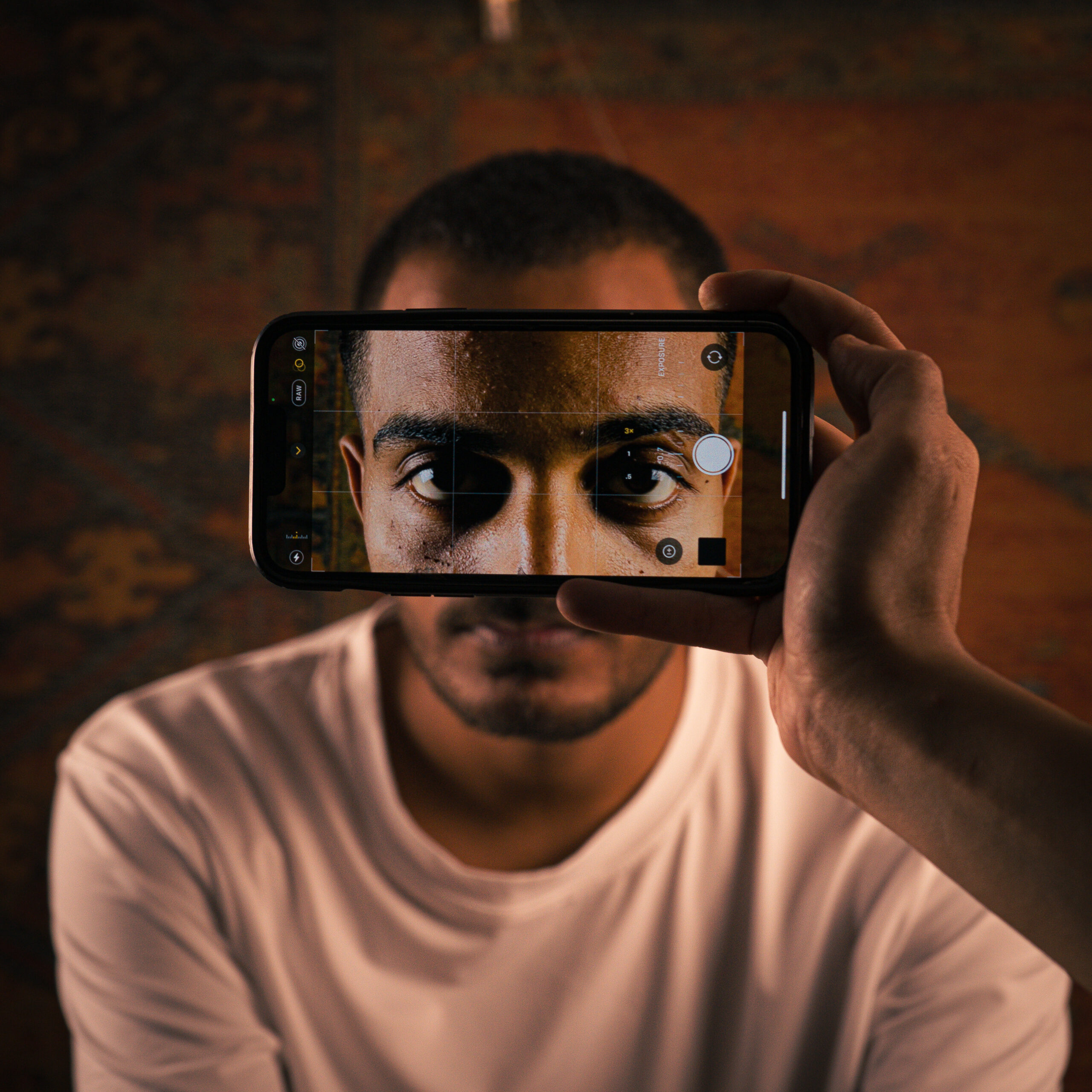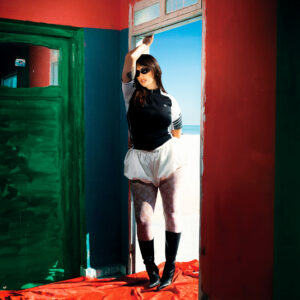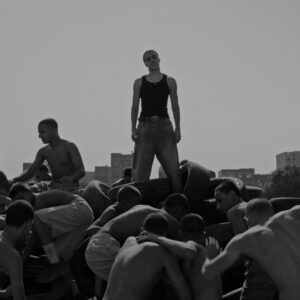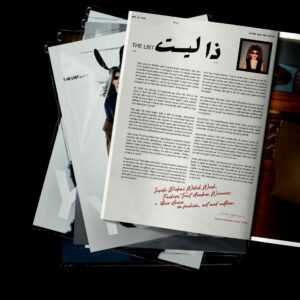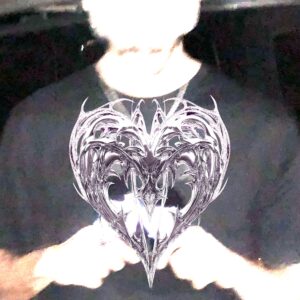When I first began exploring what I sensed to be a shift in the scoring of Ramadan series, all I had was this overarching idea that the long-standing dynasty of classical composers was gradually relinquishing control to a new wave of producers. It felt to me like a slow letting go—less gatekeeping, a soft unraveling of the industry’s grip on tradition. A quiet but perceptible breach. The legacy-driven realm of Egyptian television, once insulated from the self-contained, algorithmically curated world of independent music, seemed to be colliding with it at last. As I dug deeper, one name surfaced repeatedly: El Waili (Instagram). To me, he seemed to be the bridge between these two realities, a conduit through which less traditional and more emerging acts are finding their footing in the world of TV scoring. If anyone could help me understand this moment—not as an outsider, but as someone actively shaping it—it was him.
But when I presented the notion of a “shift,” he pushed back.
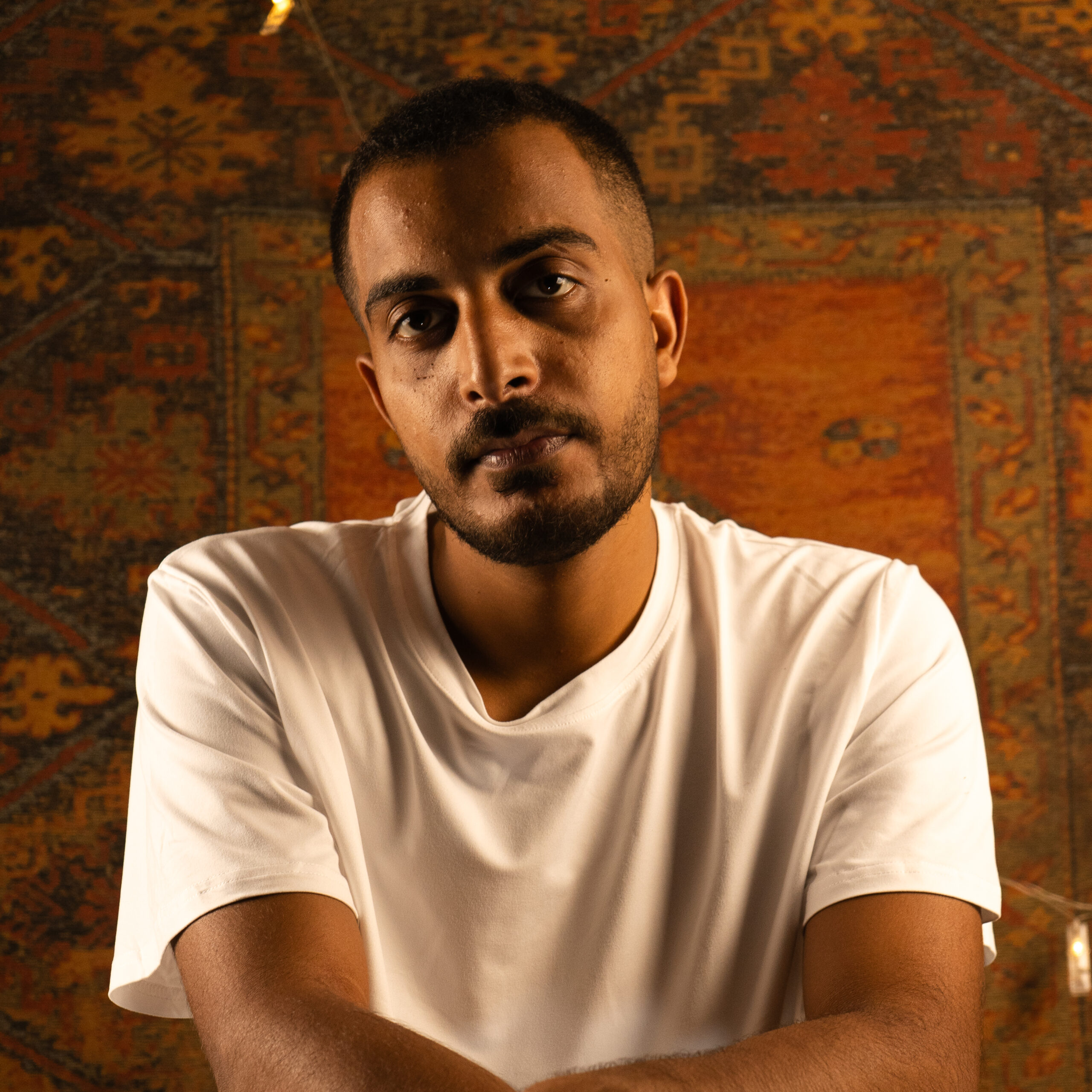
“I don’t think it’s a trend, and I don’t think it’s a shift,” he countered. “We are not redefining the space. We are simply adding new sounds to it. Diversity is needed, and this is what will make the industry develop and grow.”
His perspective challenges the assumption that young producers are here to dismantle the old order. Instead, El Waili sees it as a continuum— one that evolves in tandem with cinema and television’s ever-changing visual language. “The image and the narrative are changing, so there’s a need for a fresh new sound,” he explained. “But it’s not about one replacing the other.”
For decades, the sonic identity of Egyptian television and film anchored in the grand orchestral compositions. Icons like Sayed Mekawy and Baligh Hamdi set the foundation for what Ramadan should sound like. Their works were sonic timestamps of Ramadan’s cultural memory.
Rather than distancing themselves from the legacy of past composers, El Waili sees himself as part of the same lineage. “We’re putting our signature as part of a journey,” he said. “Rather than being perceived as outsiders from a different side of the music scene, we’re integrating and developing the sound that already exists.”
This is not disruption for disruption’s sake. It is an organic expansion of sonic possibilities.
“There is a bit of confusion around the distinction between electronic sounds and electronic production,” he says. “Although I am often labeled as an electronic music producer, most of my work involves recording live instruments, particularly in scoring and other productions. At the same time, traditional composers may use electronic elements without being considered electronic producers.”
A key factor enabling this evolution is the audience itself. Egyptian and regional listeners are no longer isolated from global musical currents. Streaming platforms, digital accessibility, and cross-cultural exchange have reshaped their ears, making them more receptive to hybridized soundscapes. What once felt foreign now resonates.
The archetypal Ramadan soundtrack—once defined by sweeping orchestral swells and deeply rooted motifs—is adapting to an audience shaped by digital discovery and borderless listening habits. Yet, rather than rejecting the sonic traditions of Ramadan, listeners are engaging with reinterpretations that reflect their evolving sensibilities.
“I don’t consider myself an experimental producer,” he muses, “but I think we owe this success and openness to the audience’s exposure to new media formats and various art formats globally.”
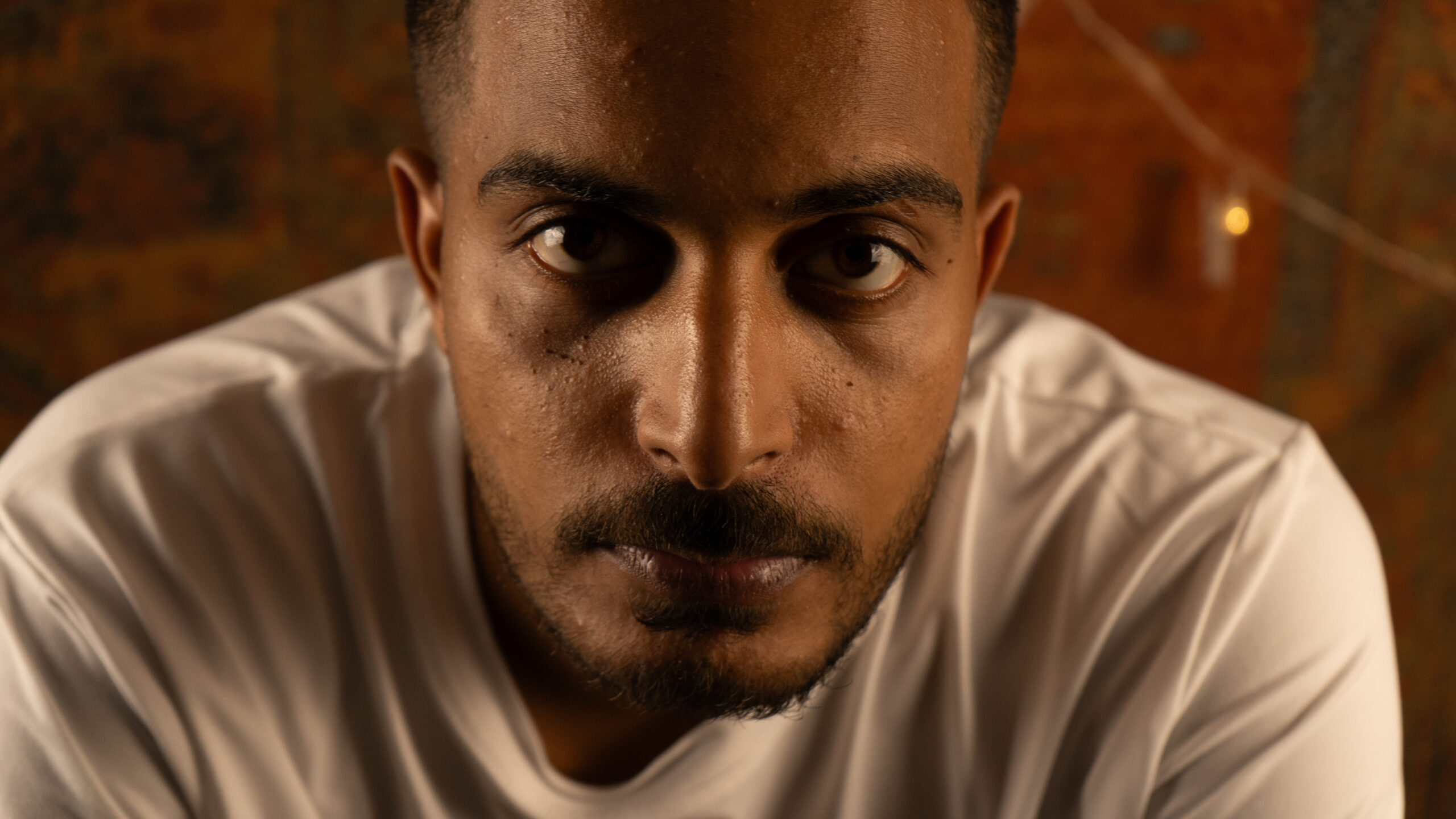
In his view, “What we perceive here as ‘experimental’ is not actually experimental”. “It’s just a global sound expressed through an authentic, local voice.” It’s about adding new textures to an already rich soundscape—for a generation raised on a far more eclectic and globalized musical diet.
This openness has allowed fresh ideas to take root, but integrating them into mainstream productions remains a delicate process—one that requires careful negotiation between artistic instinct and cinematic storytelling.
Scoring a Ramadan series is no longer a simple exercise in composition; it has become an intricate act of world-building, where sound functions as an extension of the visual language. “It’s all about the director’s vision,” El Waili says. “My job is to create something that fits the narrative’s emotional arc while still preserving my own sonic identity.”
That balance—between personal style and directorial intent—is struck through rigorous collaboration. “Good communication with the director is the key,” he says. “We go through a sound selection process, where we choose sounds that fit the director’s vision and the dramaturgical narrative but also fall within my sonic realm.”
This meticulous process involves an almost obsessive engagement with the source material, reading and re-reading briefs, listening to references, and trying to understand the characters’ voices. But it’s only after this immersive process that El Waili finds his moment of creative freedom. “Once I feel like we’ve reached a sound that fits the story and the director’s vision, then I have my space to make the piece sonically sound as I hear and create music. I Wailitize it,” he says. This final step—where he lets his instincts take over—is what makes his work stand out. “That’s when I fall in love with making music.”
Yet, as liberating as that moment is, scoring remains a discipline of restraint. Unlike his solo projects, where he follows his own creative impulses, film scoring demands continuous adaptation. “It feels limiting in some aspects in comparison to my usual music projects,” he admits. “Here, you are interpreting someone else’s emotions, feelings, and creativity rather than just your own. Alone, I visualize my own narrative rather than someone feeding me one.”
This raises an inevitable question: will more independent producers from Egypt’s underground scene move into soundtrack work? El Waili believes it depends on whether the industry is willing to embrace a more expansive sonic palette. “It’s about how much the industry is willing to tap into new sound libraries and open space for new sonic identities and signatures,” he says.
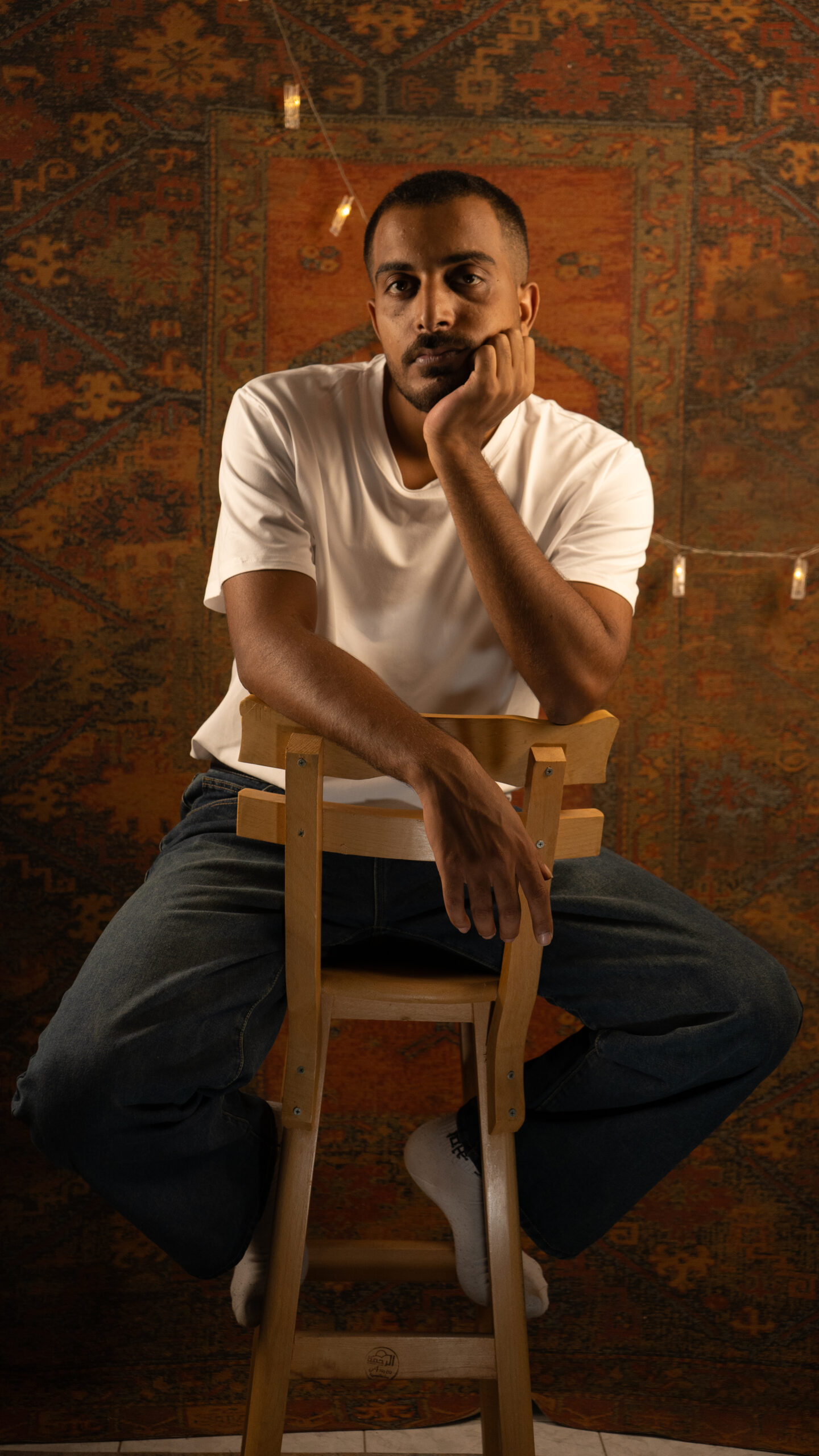
But beyond creative openness, the workflow itself presents a major hurdle. “Music production is a very individual endeavor,” he explains. “But scoring requires constant communication and collaboration. It’s a challenge for artists like myself, who are used to working alone.”
To address this, El Waili has been actively building a network of collaborators through WRST Studios, the collective and hub he co-established. “We operate from various hats and positions, yet we see our studios as a music producer hub before anything else,” WRST founders share. “This makes us have a special interest in how we work and handle scoring projects, providing physical space and artistic opportunity, and working on curating collaborations between music producers, lyricists, singers, instrumentalists, and sound engineers.”
And they’re behind one of the most talked-about scores of Ramadan 2025 so far – Ekhwaty. He credits the process to assembling the right team. “We’re more interested in shaping WRST’s sound than shaping the whole industry—but it turns out that sound was needed here.” He and his collaborators, including Ahmed Bahaa (BOB), Donia Wael, Salam Youssry, Amr Hamama (7MAMA), and Youssef Alaa (5mstashar), crafted a score deeply rooted in Egyptian soundscapes while pulling inspiration from global influences. “White Lotus was a significant influence on the music direction, in line with director Mohamed Shaker Khoudier’s vision,” El Waili shared. “The idea was to develop an Egyptian sound and identity influenced by the environment—blending the noises of the cityscape.”
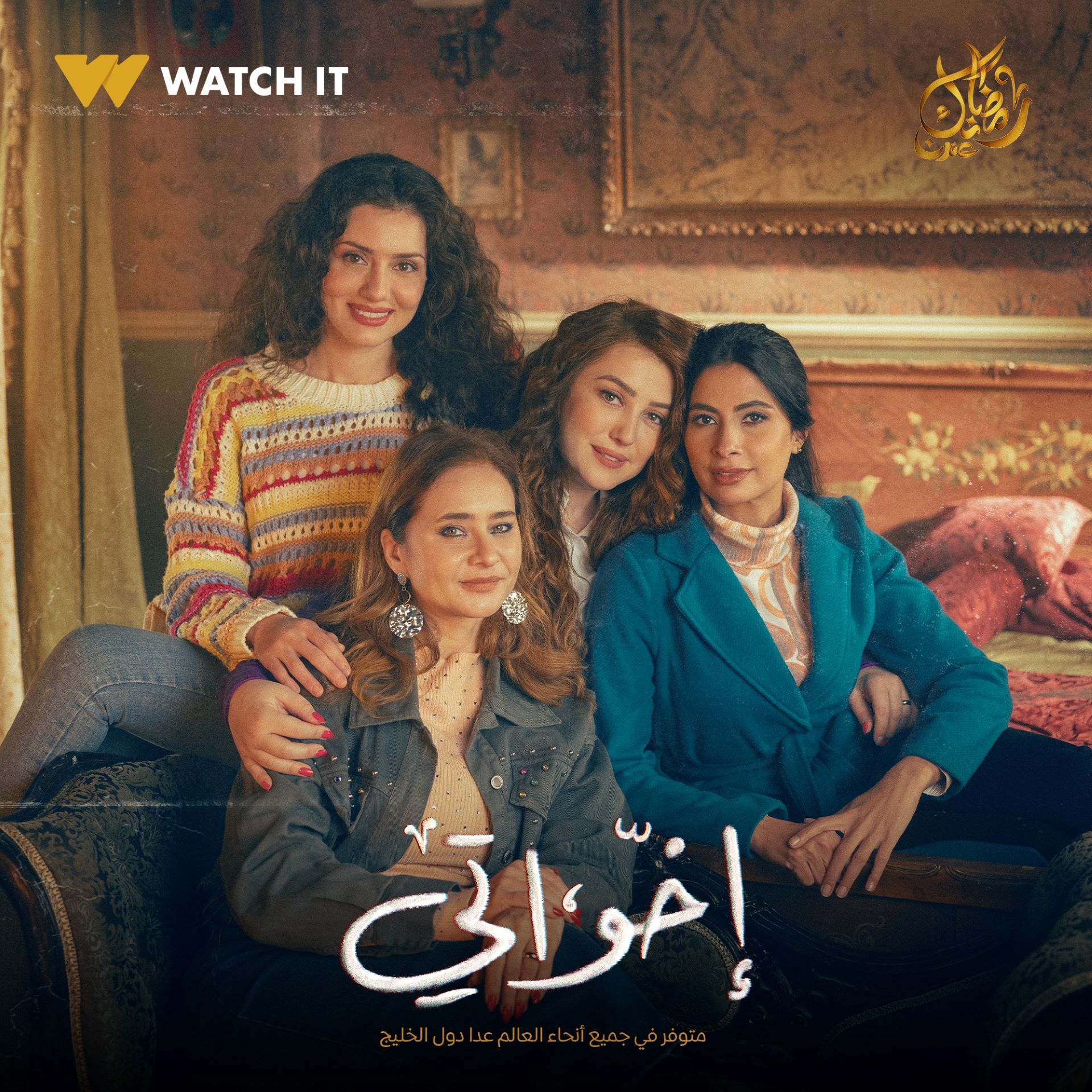
Soundtracks, like all forms of art, serve as cultural barometers, reflecting the zeitgeist of their era. As Egypt’s artistic ecosystem continues to expand and adapt, so too will the soundtracks that score its most-watched television dramas, both Ramadan series and others. For El Waili, this transformation is not a rupture but an inevitability. “It’s a normal cycle of development,” he explains. He believes that the openness of certain directors has played a huge role in allowing this transformation to take shape. “Working with open-minded directors who are not afraid to experiment with new sounds and music is a factor in that, and I consider myself lucky to collaborate in my first works with iconic directors like Hady El-Bagoury, Hani Khalifa, AbdelAziz El Nagar, Mohamed Shaker Khoudier, and Kareem Saad, who opened the space for me in this exploration to create this sonic identity for these projects in my signature voice.”
El Waili’s work—and the work of producers like him—isn’t erasing tradition but adding layers to it. And maybe that’s the real story here: not an industry in transition, but an industry in conversation. “The audience’s views and tastes are shifting,” El Waili observes. “They are part of building the culture around the music scene. It’s a connected cycle where each factor leads into the other.”
For more in-depth stories on the shifting tides of MENA’s music industry, like this look at how Ramadan scores are changing, click here.
